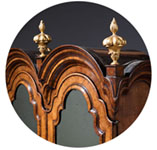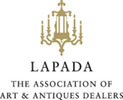A Rare 18th Century George II Musical Table Clock by Matthew King, c. 1735.
£24,500
Follow Us
A Rare 18th Century George II Musical Table Clock by Matthew King, c. 1735.
A rare George II musical table clock by Matthew King, c. 1735.
This unusual eight-day spring-driven table clock was made by Matthew King, who was active as a clockmaker in the second quarter of the 18th century.
The impressive five knopped pillar, triple fusee movement has a verge escapement with a short knife-edge suspended pendulum. It has quarter striking on a nest of eight bells. In addition, it plays one of two tunes on the hour, after which the hour is struck. The profusely engraved backplate and verge cock apron depict floral and scrolling leaf and vine patterns around a delicate signature cartouche: Mattw King LONDON.
The break-arch brass dial has a silvered chapter ring, a signature plaque to the arch, date aperture above the VI, and a mock pendulum aperture under the XII. The circular plaque in the arch is similarly signed as the backplate Mattw King LONDON. The chapter ring has Roman numerals within a narrow minute ring and outer Arabic five-minute track. It has lozenge-shaped half-hour and inner quarter hour divisions. There are two subsidiary dials in the top corners, the one of the left for strike/silent and the one on the right for selecting the tunes (RIGADOON or MINUET). The dial centre is finely matted and the corner spandrels are of a head and scroll design. The time is indicated by a fine period pair of pierced blued steel hands.
The ebonised pearwood-veneered oak case has an inverted bell top surmounted by a brass swinging carrying handle. It has a well-formed and returned top moulding and brass door edge mouldings to all sides, pierced circular red-silk backed brass sound frets over shaped glazed side panels, fretted front door quadrants also backed with red silk, and well-formed elaborated concave mouldings. The top is embellished by four brass finials on the corners.
Condition
Good. Wear consistent with age and use. Fabulous condition and keeps very good time. The movement has been restored.
Dimensions
Height: 48 cm (18.9 in)
Width: 31 cm (12.21 in)
Depth: 19 cm (7.49 in)
PREVIOUSLY SOLD
No Results Found
The page you requested could not be found. Try refining your search, or use the navigation above to locate the post.
No Results Found
The page you requested could not be found. Try refining your search, or use the navigation above to locate the post.
YOU MAY ALSO LIKE
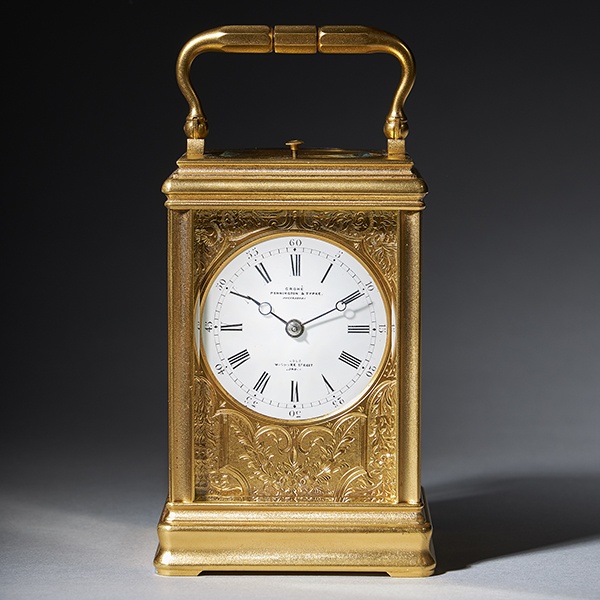
19th Century Repeating Gilt-Brass Carriage Clock by the Famous Drocourt
19th Century Repeating Gilt-Brass Carriage Clock by the Famous Drocourt £5,600 Follow Us19th Century Repeating Gilt-Brass Carriage Clock by the Famous Drocourt A superb repeating carriage clock with a gilt-brass gorge case by the famous maker...
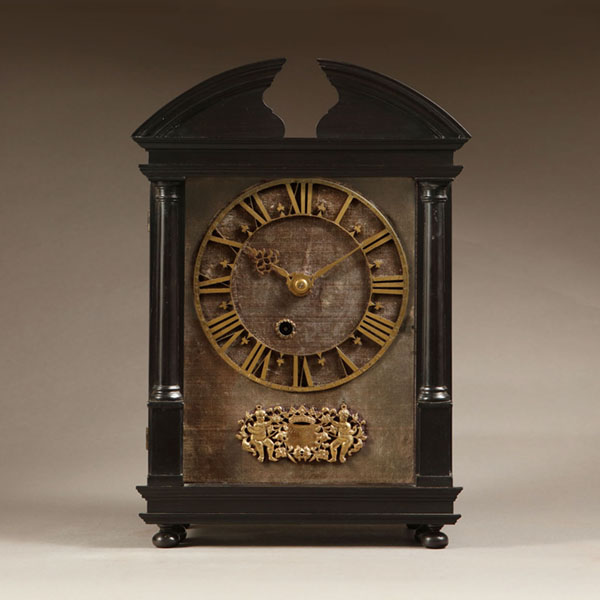
17th-Century Hague Clock Signed by Pieter Visbagh, circa 1675
Small 17th Century Hague clock made c. 1675 by Pieter Visbagh, who was apprenticed by Salomon Coster. The latter made the first pendulum clock according to the instructions of Christiaan Huygens, the internationally renowned scientist who developed the idea of applying a pendulum to a clock movement.
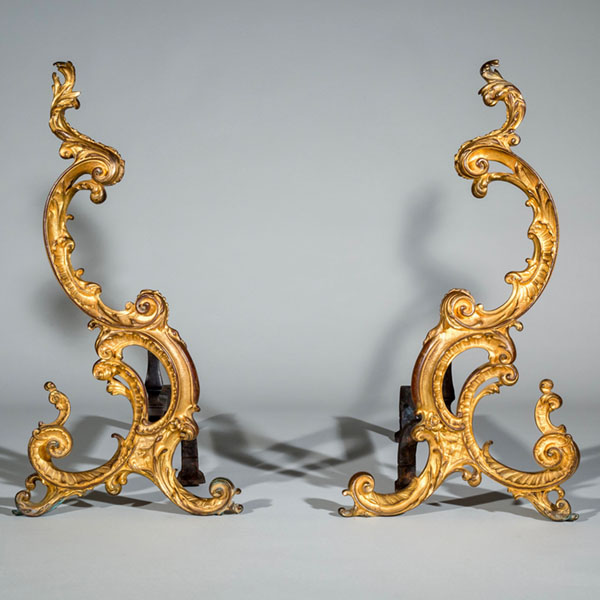
Pair of 18th-Century English Rococo Gilt Bronze Andirons or Firedogs
An exceptional pair of 18th century English Rococo gilt bronze andirons or fire dogs.
The bold shape of these andirons relate to designs of Thomas Johnson (1714–1778), one of London’s pioneers of the ‘Modern’ or French style, later known as Rococo.
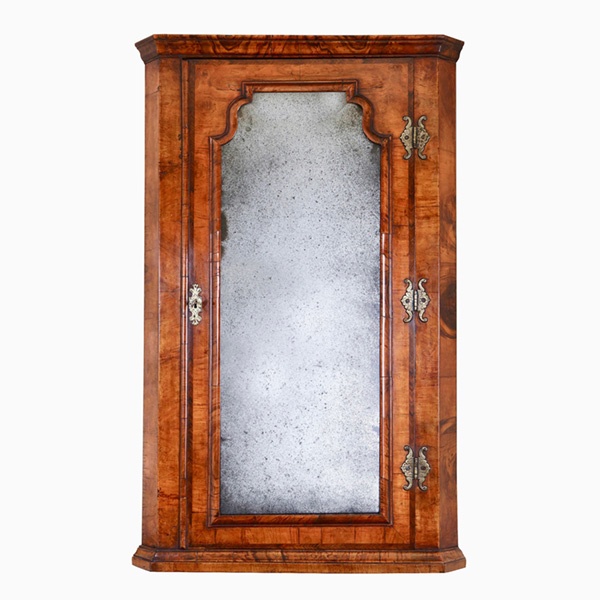
Queen Anne Walnut Corner Cupboard with Bevelled Mirror Plate
A truly remarkable find in original condition. To the door a shaped soft bevelled mirror plate is framed by a cross-grain molding of typical queen Anne design which is further cross-banded, feather-banded and edged to the opening with a single de-molding.

19th Century Repeating Gilt-Brass Carriage Clock by the Famous Drocourt
19th Century Repeating Gilt-Brass Carriage Clock by the Famous Drocourt £5,600 Follow Us19th Century Repeating Gilt-Brass Carriage Clock by the Famous Drocourt A superb repeating carriage clock with a gilt-brass gorge case by the famous maker...

17th-Century Hague Clock Signed by Pieter Visbagh, circa 1675
Small 17th Century Hague clock made c. 1675 by Pieter Visbagh, who was apprenticed by Salomon Coster. The latter made the first pendulum clock according to the instructions of Christiaan Huygens, the internationally renowned scientist who developed the idea of applying a pendulum to a clock movement.

Pair of 18th-Century English Rococo Gilt Bronze Andirons or Firedogs
An exceptional pair of 18th century English Rococo gilt bronze andirons or fire dogs.
The bold shape of these andirons relate to designs of Thomas Johnson (1714–1778), one of London’s pioneers of the ‘Modern’ or French style, later known as Rococo.

Queen Anne Walnut Corner Cupboard with Bevelled Mirror Plate
A truly remarkable find in original condition. To the door a shaped soft bevelled mirror plate is framed by a cross-grain molding of typical queen Anne design which is further cross-banded, feather-banded and edged to the opening with a single de-molding.
